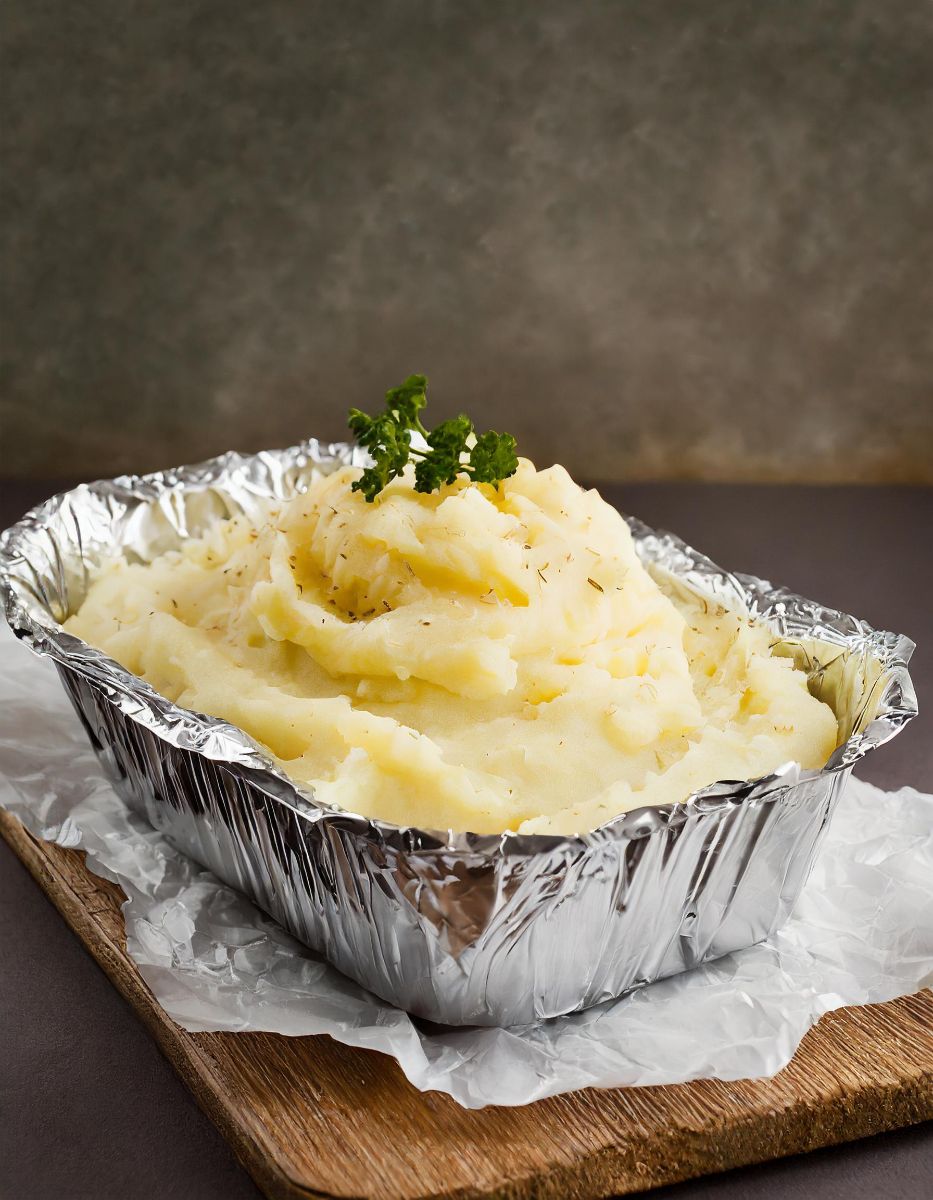Mashed potatoes are a staple in many cuisines around the world, known for their creamy texture and buttery taste. They are often prepared in large quantities, which can lead to leftovers that need to be stored properly to prolong their freshness and prevent foodborne illnesses. Knowing how long you can keep mashed potatoes in the fridge and understanding the signs of spoilage are crucial to ensuring you consume them while they're still safe and enjoyable.
In this article, we will delve into the specifics of mashed potatoes' shelf life in the refrigerator and provide you with clear guidelines on when they should be discarded.
Advertisement
Understanding the Shelf Life of Mashed Potatoes in the Refrigerator
When stored correctly, mashed potatoes can last quite comfortably in the refrigerator. Here's a breakdown of their expected shelf life:
1. General Refrigerator Storage
Typically, mashed potatoes will remain fresh in the refrigerator for 3 to 5 days. This time frame assumes that you have promptly placed the mashed potatoes in the fridge within two hours of cooking, as leaving them out at room temperature beyond that can lead to rapid bacterial growth.
Typically, mashed potatoes will remain fresh in the refrigerator for 3 to 5 days. This time frame assumes that you have promptly placed the mashed potatoes in the fridge within two hours of cooking, as leaving them out at room temperature beyond that can lead to rapid bacterial growth.
2. Factors That Affect Shelf Life
Several variables can impact how long your mashed potatoes will keep in the fridge:
Several variables can impact how long your mashed potatoes will keep in the fridge:
a. The temperature of your refrigerator should ideally be set below 40°F (4°C) to minimize the risk of bacterial growth.
b. The storage container should be airtight to prevent contaminants and moisture from getting in.
c. The addition of dairy products or other perishable ingredients to your mashed potatoes may reduce their overall shelf life.
d. Frequent temperature fluctuations, for example by frequently opening the refrigerator door or by placing the container in warm areas inside the fridge, can also affect longevity.
Signs That Your Mashed Potatoes Have Gone Bad
It's important to recognize when mashed potatoes have spoiled to avoid foodborne illness. Look out for these indicators:
1. Off-Smell
A sour or unpleasant aroma is generally the first sign that your mashed potatoes have started to go bad. Trust your nose; if they don't smell like they should, it's safer to discard them.
A sour or unpleasant aroma is generally the first sign that your mashed potatoes have started to go bad. Trust your nose; if they don't smell like they should, it's safer to discard them.
2. Unusual Taste
If the mashed potatoes have a sour or off taste, this is a sure sign of spoilage and you should stop eating them immediately.
If the mashed potatoes have a sour or off taste, this is a sure sign of spoilage and you should stop eating them immediately.
3. Visible Mold
If there’s any visible mold growth, this is an unambiguous indication of spoilage, and you should throw away the entire container because mold can spread unseen below the surface.
If there’s any visible mold growth, this is an unambiguous indication of spoilage, and you should throw away the entire container because mold can spread unseen below the surface.
4. Texture Changes
Should the mashed potatoes develop a watery layer on top or become excessively dry, gooey, or lumpy in contrast to their original creamy texture, it's a sign that they are no longer at their best quality.
Should the mashed potatoes develop a watery layer on top or become excessively dry, gooey, or lumpy in contrast to their original creamy texture, it's a sign that they are no longer at their best quality.
Best Practices for Storing Mashed Potatoes
To maximize the shelf life of your mashed potatoes in the fridge:
1. Transfer them to an airtight container or resealable plastic bag as soon as they have cooled down to room temperature.
2. Spread the mashed potatoes evenly in the container to help them cool down uniformly and quickly.
3. Label the container with the date of storage, so you'll always know how long they've been in the fridge.
4. Keep the refrigerator at a constant temperature and try not to open the door too often.
Conclusion
Advertisement
Mashed potatoes can be a delicious reminder of a grand meal shared with family and friends, but like all good things, they do not last forever. To enjoy your mashed potatoes while they're still safe and tasty, follow the storage guidelines and keep an eye out for any potential signs of spoilage. If in doubt, it is always better to err on the side of caution and throw them out. Remember, no meal is worth the risk of food poisoning!

